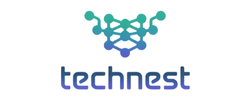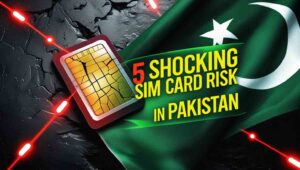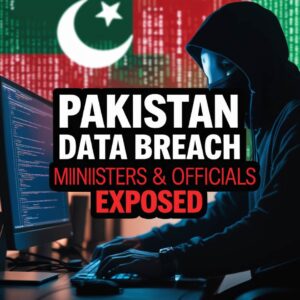In today’s digital world, data breaches are no longer rare events. Every few months, we hear about major companies suffering cyberattacks that expose millions of user records. From emails and passwords to phone numbers, credit card details, and even passport scans—hackers sell this information on the dark web.
If you use the internet regularly (and who doesn’t?), there’s a real chance that some of your details are already floating around online. That’s why it’s so important to know how to check if your personal data has been leaked online and what to do if you find yourself affected.
This guide will walk you through the importance of data security, the best tools to check leaks, real-world examples, and practical steps to protect yourself.
Why Checking if Your Personal Data Has Been Leaked Online Matters
Your personal data is more valuable than you think. Hackers and cybercriminals use it for different types of fraud, such as:
- Identity theft – Criminals can use your leaked data to apply for loans or open accounts in your name.
- Phishing scams – Hackers send fake emails or texts using your leaked info to trick you into revealing even more details.
- Credential stuffing – If you reuse the same password across multiple sites, a leaked password can give attackers access to several accounts.
- Financial fraud – Credit card or bank details can be used for unauthorized purchases.
A recent IBM report revealed that the average cost of a data breach in 2024 was over $4 million. While that number reflects business costs, individuals face personal financial losses, mental stress, and long recovery processes.
So, checking if your personal data has been leaked online isn’t just about curiosity—it’s about protecting your future.
Real-World Examples of Personal Data Leaks
To understand how serious the problem is, let’s look at some famous data breaches:
- Facebook (2019) – Over 530 million users’ phone numbers and account details were exposed and later sold online.
- LinkedIn (2021) – 700 million user records, including emails and professional details, were leaked.
- Yahoo (2013–2014) – One of the largest breaches ever, with 3 billion accounts compromised.
- Equifax (2017) – Sensitive financial information of 147 million people was stolen.
If these tech giants with strong security systems can get hacked, it shows that no one is 100% safe. That’s why it’s essential to regularly check if your personal data has been leaked online.
Best Tools to Check if Your Personal Data Has Been Leaked Online
Luckily, there are reliable tools that make it easy to check for data leaks. Here are some of the most trusted options:
1. Have I Been Pwned
This is the most popular free service for checking data leaks. Simply enter your email, and it will scan across known breach databases. It also offers alerts for future breaches.
👉 Visit: Have I Been Pwned
2. Firefox Monitor
Powered by the same database as Have I Been Pwned, Firefox Monitor lets you check for leaks and also gives safety tips.
3. Google Password Manager
If you use Chrome or an Android phone, Google automatically checks your saved passwords against breach databases and warns you.
4. Identity Guard & Norton LifeLock (Paid Services)
These provide dark web monitoring, alerting you if your social security number, ID, or bank info shows up in underground markets.
5. Password Managers (Dashlane, 1Password, Bitwarden)
Many password managers now include breach monitoring, so you know if your credentials are exposed.
By regularly using these services, you can easily check if your personal data has been leaked online and act fast.
What to Do if Your Personal Data Has Been Leaked Online
Discovering that your data is exposed can be scary, but you can still protect yourself if you act quickly. Here’s what you should do:
- Change all affected passwords immediately – Use strong and unique ones for each account.
- Enable two-factor authentication (2FA) – Even if someone has your password, they’ll need a second code to log in.
- Use a password manager – This ensures you don’t reuse weak passwords across multiple sites.
- Check your bank accounts and credit reports – Look for unauthorized transactions or suspicious activity.
- Watch for phishing attempts – Hackers may send you fake “security alerts” using your leaked info.
- Report to authorities if needed – In case of identity theft or financial fraud, report it to your bank and local cybercrime unit.
These steps can’t erase the leak, but they can minimize the damage and help you stay safe moving forward.
How to Prevent Your Personal Data From Being Leaked Online
Prevention is better than cure. You can’t stop every data breach, but you can reduce your risk significantly by following these practices:
- Don’t reuse passwords – Use a unique one for each site.
- Enable security updates – Keep your phone, apps, and computer updated.
- Limit what you share online – The less information you put out, the less hackers can use.
- Use a VPN on public Wi-Fi – Prevents hackers from intercepting your data.
- Regularly check if your personal data has been leaked online – Make it a habit every few months.
1. How can I check if my personal data has been leaked online for free?
You can use free tools like Have I Been Pwned or Firefox Monitor. Just enter your email and see if it appears in any known data breaches.
2. Is it safe to use websites that check if my personal data has been leaked online?
Yes, trusted services like Have I Been Pwned are safe because they only search breach databases without exposing your details.
3. What should I do if my personal data has been leaked online?
Immediately change your passwords, enable two-factor authentication, and monitor your bank and email accounts for suspicious activity.
4. Can I remove my personal data if it has been leaked online?
Unfortunately, once data is leaked, you can’t fully erase it. But you can limit damage by securing your accounts and reporting fraud.
5. How often should I check if my personal data has been leaked online?
It’s a good practice to check every few months, or whenever you hear news about a major data breach.
Final Thoughts on How to Check if Your Personal Data Has Been Leaked Online
Data breaches are becoming the “new normal.” But instead of ignoring the problem, you can stay ahead by regularly checking for leaks and following basic cybersecurity practices.
Remember:
- Always monitor your accounts.
- Use trusted tools like Have I Been Pwned.
- Take action immediately if your data is compromised.
Knowing how to check if your personal data has been leaked online is one of the smartest things you can do to stay safe in today’s digital age.




Leave a Reply